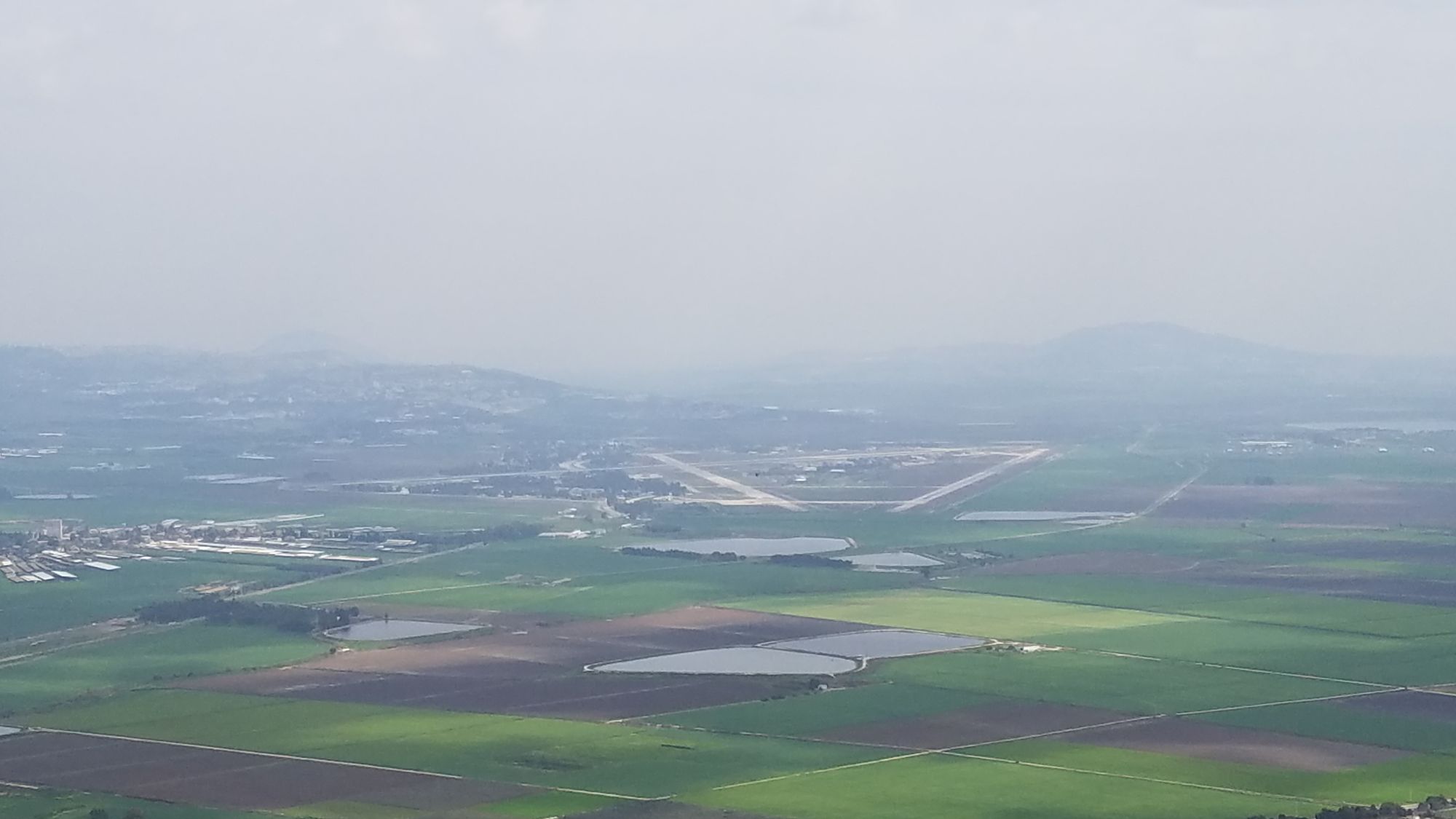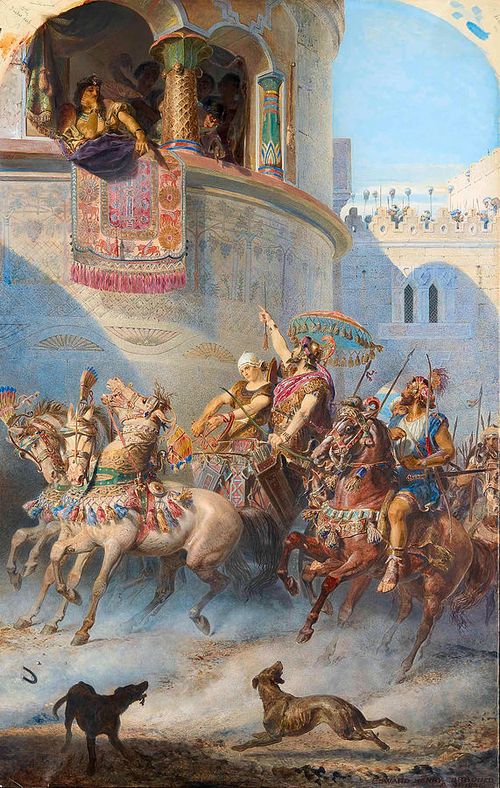2 Kings 10:26-31
[Jehu] brought out the pillar that was in the house of Baal and burned it. And …demolished the pillar of Baal, and demolished the house of Baal, and made it a latrine to this day. Thus, Jehu wiped out Baal from Israel. But Jehu did not turn aside from the sins of Jeroboam the son of Nebat, which he made Israel to sin— that is, the golden calves that were in Bethel and in Dan. And the LORD said to Jehu, “Because you have done well in carrying out what is right in my eyes, and have done to the house of Ahab according to all that was in my heart, your sons of the fourth generation shall sit on the throne of Israel.” But Jehu was not careful to walk in the law of the LORD, the God of Israel, with all his heart. He did not turn from the sins of Jeroboam, which he made Israel to sin.
2 Peter 3:4-9
They will say, “Where is the promise of his coming? For ever since the fathers fell asleep, all things are continuing as they were from the beginning of creation.” For they deliberately overlook this fact, that the heavens existed long ago, and the earth was formed out of water and through water by the word of God, and that by means of these the world that then existed was deluged with water and perished. But by the same word the heavens and earth that now exist are stored up for fire, being kept until the day of judgment and destruction of the ungodly. But do not overlook this one fact, beloved, that with the Lord one day is as a thousand years, and a thousand years as one day. The Lord is not slow to fulfill his promise as some count slowness, but is patient toward you, not wishing that any should perish, but that all should reach repentance.
There is a saying that seems appropriate contemplating the Jehu chapters of 2 Kings: “The wheels of justice turn slowly; but grind exceedingly fine.” Recall that back in the first book of Kings, Elijah had famously orchestrated a revival to top all revivals. In 1 Kings 19 he got everyone “saved,” even King Ahab, while Jezebel’s prophets of Baal seasoned the waters of the Kishon brook with their own shed blood. It all culminated in a royal victory parade back to Jezreel and an unlikely reset for Israel. Nevertheless, it was not to be. Jezebel put her foot down and gave chase to the uppity prophet. Consequently, Elijah’s left nursing his wounded pride on the slopes of Mount Sinai: “I have been very jealous for the LORD, the God of hosts. For the people of Israel have forsaken your covenant, thrown down your altars, and killed your prophets with the sword, and I, even I only, am left, and they seek my life, to take it away.” (1 Kings 19:10).
God doesn’t see it that way. God sees. God will judge. God will recompense. There on Sinai, judgment on the house of King Ahab and Queen Jezebel is decreed. It will come about in the form of adversaries from without and within. In the person of Hazael of Syria, Israel will have perpetual warfare. In Elisha, there will be a dissonant prophetic voice disrupting business as usual in the northern kingdom. And last, but not least, the human cudgel by the name of Jehu (whose name, not coincidentally means “He is god”) will clean house from within.
The irony of the pronouncement from atop Sinai is that it doesn't come to fruition right away. Elijah does call Elisha right off, but the external and internal “thorns in the flesh” of Israel will take years to debut. Although it's not possible to calculate the number of years it took for the D-Day fulfillment in 2 Kings 9-10, two decades plus is a reasonable guesstimate.
In the call of Jehu, the season of God’s forbearance with Israel has filled to the full. When visiting Israel, I love the visits to Mount Carmel, where standing atop the wind-blown Muhraqa Monastery roof overlooking the Jezreel Valley, the sweeping view eastward towards the Hill of Moreh in the distance enables a replay of the scene in 2 Kings 9:20 in my mind’s eye, “The driving is like the driving of Jehu the son of Nimshi, for he drives furiously.” (See picture below!)
Vengeance is on the way, in the spirit of fiery Elijah, Jehu says, “Come with me, and see my zeal for the LORD” (2 Kings 10:16). “The Madman” arrives at Jezreel, and deposits the carcass of King Jehoram, son of Ahab and Jezebel, on the field of Naboth’s vineyard —the scene of the precipitating crime— and then goes into the city to preside over a dog buffet at the expense of Queen Jezebel. The friends and extended family of Ahab are dispatched brutally in Samaria. The in-laws in Judah don’t fare much better: The southern King Ahaziah, and his kin are bloody casualties of the murderous rampage at the hand of Jehu.
There are troubling notes playing in the background to this dark episode. Justice is dispensed, and God commends Jehu in the deed— saying he has “done well in carrying out what is right in my eyes…” (10:30). The carnage described in gory detail is unprecedented and not repeated anywhere else in Scripture. It's ugly, but the dirty divine deed is done.
As I contemplate these two chapters of 2 Kings, I pine for meaning behind the messiness of violent human agency. Jehu carried out a hard judgement— a judgement commanded and commended by God. Nevertheless, in the fall-out from this overly human, zealous apocalypse on steroids... ominous hints of trouble ahead rise to the surface. God says Jehu’s dynasty will run up to the fourth generation, meaning it won’t last. The Syrians via Hazael will re-take all the land in the Transjordan— the territory of Gad, Reuben and the half-tribe of Manasseh. The lucrative partnership with Phoenicia is past tense with the disposal of Jezebel. The alliance with the southern kingdom of Judah is beyond strained. Jehu will preside over a kingdom in decline, low-hanging fruit that will be easy pickings for the Assyrians a hundred years hence. Here’s the thought: It could have been different, perhaps. Jehu put away Baalism from Israel, but still hung onto Jeroboam’s golden calf shrines in Bethel and Dan. What might have been for Jehu and his sons? A dangling possibility of a faithful kingdom, dropped from the grasp of human fallen-ness.
Back in the mid-1990s, Wayne Watson wrote and sang a song entitled, “If I Were You.” That is, if he was God, and judgement was left in his hands, he’d pull a Jehu! It would be a veritable blood-bath:
If I were You, if I ran this place
There wouldn't be no mercy, no
There wouldn't be no grace
And people that wander off and go astray
I'd make real sure that they would pay
Yeah, that's what I'd do if I were You
And if I were You, if I ran this town
The righteous would be sitting pretty
And the rotten would come tumbling down
Oh, they'd beg and they'd wrangle for a second chance
I'd say, “sorry, boys, but I just can't”
Yeah, that's what I'd do if I were You
But You know me, I'm just a man
Of unclean lips and unclean hands
Some of the thoughts I have
Make me want to run and hide, yeah
Well, I don't know much, but I observe
You've never treated me like I deserve
Your loving arms are always open wide
Oh, well, You know me, I'm just a man
Of unclean lips and unclean hands
Some of the thoughts I have
Make me want to run and hide, run and hide
Well, I don't know much, but I've observe
You've never treated me like I deserve
Your loving arms are always open wide, open wide
If I were You, oh, catastrophe, ooh...
I wonder what in the world
Kind of world would this world be
I guess I'll take my place
Wrapped in amazing grace
Let You be You
Uh-huh, that's what I'll do
The Conquest under Joshua, and this mini “Day of the Lord” at the hands of Jehu, underscore the consequences of sin and alienation from God. They are both foreshadows of the Day when God unveils the New Heavens and New Earth— of which the Book of Revelation displays multiple angles and perspectives in increasing intensity throughout. Peter rehearses this apocalyptic finale in his second epistle referenced above (and below). When the Lord Jesus Christ comes fast and furiously up that metaphorical Jezreel Valley on the Final Day, his judgment will not be an admixture of human over-kill and barbarism, for only God Himself can consummate righteousness and justice in perfect harmony. Instead of a dwindling kingdom stained by violence and unfaithfulness, we read in the closing chapters of the Bible of a Kingdom that will endure forever in holy perfection.
In the meantime, “Do not overlook this one fact, beloved, that with the Lord one day is as a thousand years, and a thousand years as one day. The Lord is not slow to fulfill his promise as some count slowness, but is patient toward you, not wishing that any should perish, but that all should reach repentance[!]”
Maranatha. Come Lord Jesus.

Photo above: From the top of Mount Carmel, looking east over the Jezreel Valley towards the Hill of Moreh and the path Jehu took on his chariot dash to Jezreel.
Photo in inset: “The Entrance of Jehu in Jezreel” by Edward Henry Corbould


